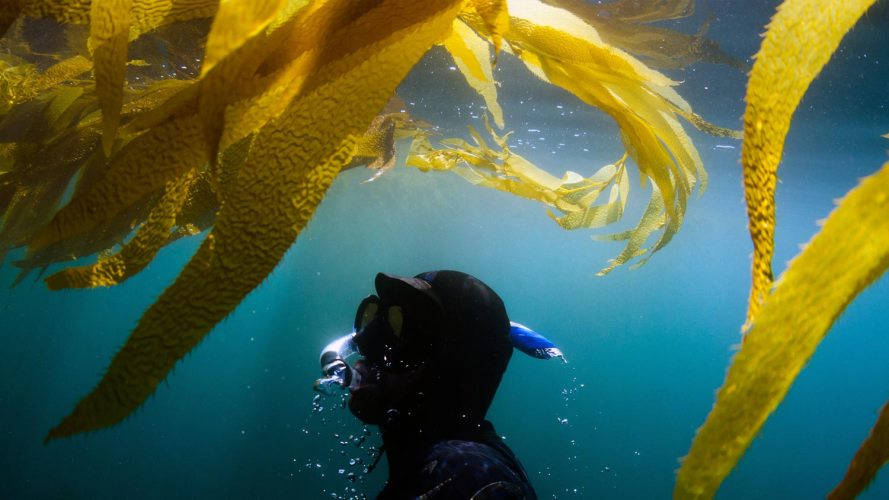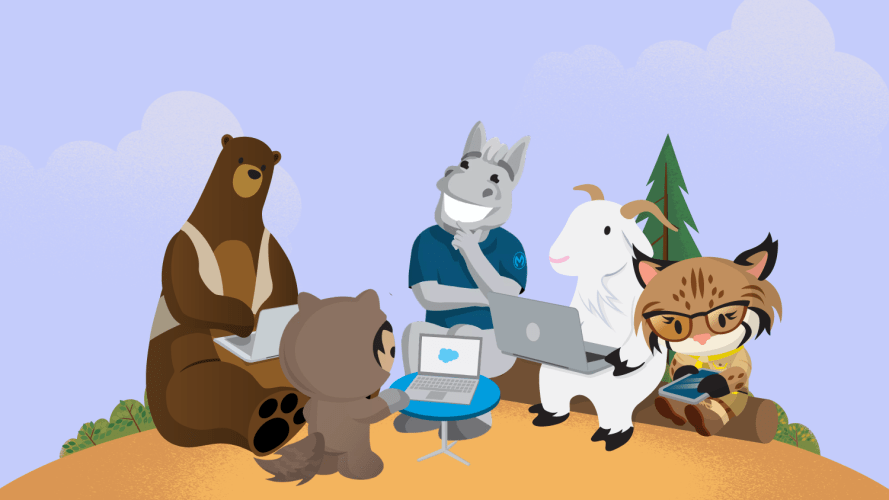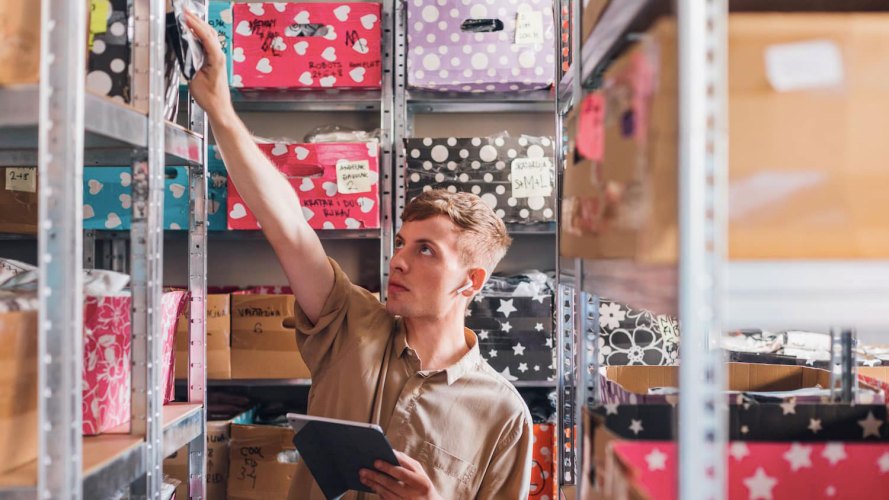You Can Fight Climate Change and Boost Revenue — See How These Ecopreneurs Do It



With global warming, our planet is on a perilous path to becoming uninhabitable. It’s time to rise to the challenge and find climate solutions.

Mai Le
Late in 2022, the world population topped 8 billion. That’s more mouths to feed and more land to farm, which leads to more emissions put into the air. A recent United Nations report predicts the earth will be unlivable within the decade if we aren’t able to limit global warming to 2 degrees Celsius. While this news might induce anxiety for many, it inspires climate action for a select few. These people have decided to help stem the tide of the climate crisis and dedicated resources to work on climate solutions. They are environmentalists, activists, and entrepreneurs. We give these people, who also bring a wealth of business savvy to their work, a new, almost-heroic title: ecopreneurs.
A Salesforce+ series, aptly called “The Ecopreneurs,” features these activists and the work they’re doing to save the planet. Here we highlight the first three episodes and showcase the work these folks do.
Episode 1: SeaTrees Helps Restore Coastal Ecosystems
In the first episode, we meet Michael Stewart and Kevin Whilden, lifelong surfers and the co-founders of the nonprofit Sustainable Surf and its SeaTrees initiative. SeaTrees’s technology platform lets individuals easily contribute to the restoration and protection of coastal ecosystems. Coastal wetlands, sea kelp forests, mangrove forests, and coral reefs effectively suck carbon out of the atmosphere (blue carbon). The financial contributions made through SeaTrees, which can be as small as $10, support communities in their efforts to plant and protect blue-carbon coastal ecosystems. SeaTrees also partners with corporate brands so those organizations can directly fund additional blue-carbon projects.
The vision
SeaTrees is a platform that allows people to easily contribute to planting sea trees and restoring coastal ecosystems.
The problem it solves
Since coastal wetlands can store much more carbon than they release (helping to limit carbon in the atmosphere), conservation and restoration of these areas is a nature-based strategy to mitigate the effects of climate change. This strategy can help global communities adapt to the ongoing climate crisis.
The business model
SeaTrees’s technology platform enables millions of people to make individual contributions to projects that restore and protect worldwide coastal ecosystems. “The idea was to build the website on an ecommerce platform and make everything we do a product someone can actually support — in the same way you get a rideshare,” Stewart said. “If we can make it that easy, or even easier than that to plant a tree in the sea, then we’re golden.”
Get involved
Watch episode 1 to see how Stewart and Whilden make a difference to coastal communities around the globe. Then help the fight against climate change by funding a blue carbon project via SeaTrees.
Episode 2: BlocPower Looks to Offer Clean Energy to Everyone
In “The Ecopreneurs” episode 2, we meet Donnel Baird’s BlocPower. The clean-tech start-up uses clean energy to help disadvantaged communities benefit from more sustainable living spaces, healthier environments, more efficient appliances — and the related jobs created.
The vision
BlocPower invests in retrofitting low-income multi-unit buildings and is expanding to greening cities across America, using capital from Wall Street.
The problem it solves
The benefits of sustainability shouldn’t be limited to wealthy communities. BlocPower upgrades multi-unit buildings with energy-efficient heating and cooling systems in under-resourced communities. Their work translates to healthier air, high-paying green jobs, and increased investment in those neighborhoods.
The business model
BlocPower purchases clean-energy equipment and leases it to building owners. The lease terms of 10 to 15 years make it affordable for property owners. BlocPower also hires local green construction firms and trains them to install clean-energy equipment in the buildings. They’ve also created software to support their mission, like BlocMaps. The technology estimates the environmental impact of upgrading against the cost so construction firms and building owners can make more informed decisions. Through these initiatives, BlocPower funds clean-energy projects and offers services to often-overlooked communities.
BlocPower helps to improve health outcomes, create jobs, and reduce greenhouse gas emissions throughout the U.S. So far, they’ve green retrofitted over 1000 buildings. They recently won a contract to “green” Ithaca, N.Y., by meeting all the city’s electricity needs with renewable energy and decarbonizing all its buildings. “At BlocPower, we’ve tried to intentionally frame our work in a very hyper-inclusive way,” Barid said. “Everybody wants their kids to be healthy and not have to breathe in indoor air pollution. Everybody wants lower energy bills. Everybody wants their neighbors to have jobs.”
Get involved
If you live in a multi-family building, you can ask the building owner if they’d consider decarbonizing their building. Watch “The Ecopreneurs” episode 2 to see how BlocPower gives neighborhoods an opportunity to improve their health outcomes while reducing greenhouse gas emissions.
Team Earth has landed
We believe business is the greatest platform for change, and success should be for everyone on Earth and the planet itself. Because the new frontier? It’s right here.



Episode 3: Acción Andina Helps Replant Native Forests and Wetlands
“The Ecopreneurs” episode 3 introduces us to Acción Andina, a nonprofit helmed by Constantino “Tino” Aucca and Florent Kaiser. Aucca comes from an Andean indigenous community known as the Quechuan. His 30-plus years as an environmentalist planting trees such as the Polylepis have allowed him to see the impact of climate changes on the landscape, the water table, and the lives of the indigenous communities in the region. The years of environmental activism have helped Aucca forge relationships with local communities and acquire the know-how to tackle the climate work. Still, he needed more technology and fundraising to grow the organization. So, in 2018 he put out a call to global networks for partners. It’s a call Kaiser answered.
The two started working together and used technology to increase Acción Andina’s impact. The result? Acción Andina and the local indigenous community planted 150,000 trees the first year, 500,000 the next, more than a million the following year, and more than 2 million in the fourth year. They rely on a customer relationship management [CRM] platform to fundraise, market their efforts, schedule their tree planting program, and scale their business. Their technology platform supports their work, but in the end, it’s about combating deforestation. “Deforestation is winning the battle,” Aucca said. “We are losing a lot of glaciers, but when we put trees along the Andes, we are helping secure the water balance and preventing climate change.”
The vision
Acción Andina works with indigenous communities to protect and restore the native forest, wetlands, and ecosystems of the Andes highlands.
The problem it solves
Acción Andina sustains and scales tree planting to increase water balance and water capture capacity, which will support the ecosystem and the communities that rely on it. “The main economic activity is agriculture,” Aucca said. “If you save the forest, you save the wetlands also. Acción Andina is protecting those ecosystems. We are going to save water, sequester carbon, [and] provide more biodiversity.”
The business model
Local indigenous communities living in the Andes highlands cultivate the indigenous Polylepis trees. Acción Andina then purchases the tree saplings and works with farmers to plant the trees throughout the Andes. The positive results of climate action can be seen in the connectivity of this ecosystem. Acción Andina’s aspires to restore a million hectares in the next 25 years. The goal allows people to think big., “It allows people to come together to see collective action,” Kaiser said. “Acción Andina started as a project.It is now becoming a movement.”
Get involved
Learn more about the work Acción Andina is doing in the Andes highlands by watching their Ecopreneurs episode. Then support their efforts to fight climate change and biodiversity loss. Donations help communities in the Andes restore and protect native forests.
How can you increase your climate action impact?
These ecopreneurs are making a difference in their communities and beyond. How can you do your part to stop greenhouse gases from making our planet unlivable?
Create a sustainable future, make a positive impact, and combat the effects of climate change. Watch the entire series.



























